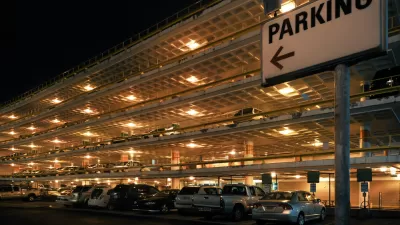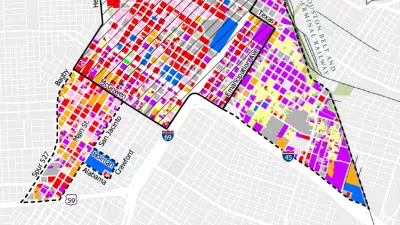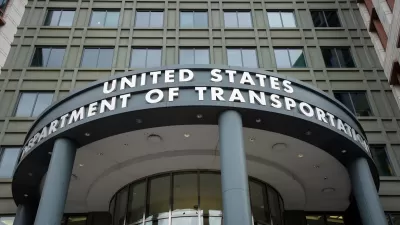Put another way, Shoup's case against parking requirements is that they make life harder for the poor.
Donald Shoup takes to the Opinion pages of The Washington Post to explain how parking requirements hurt people living in poverty, or, more specifically: "Parking requirements also undermine public transit and make life harder for people who are too poor to own a car."
According to Shoup, who references his work in the High Cost of Free Parking in the article, goes into more detail about the negative effects of parking requirements. Though the arguments pioneered by Shoup in the past have become more commonplace in planning circles, it's helpful to see how Shoup presents his case to the broader public. Also, Shoup concludes the op-ed with an appeal directly to planners:
City planners cannot do much to counter the inequality of wealth in the United States, but they can help to reform parking requirements that place heavy burdens on minorities and the poor.
FULL STORY: How parking requirements hurt the poor

Rethinking Redlining
For decades we have blamed 100-year-old maps for the patterns of spatial racial inequity that persist in American cities today. An esteemed researcher says: we’ve got it all wrong.

Planetizen Federal Action Tracker
A weekly monitor of how Trump’s orders and actions are impacting planners and planning in America.

Walmart Announces Nationwide EV Charging Network
The company plans to install electric car chargers at most of its stores by 2030.

New State Study Suggests Homelessness Far Undercounted in New Mexico
An analysis of hospital visit records provided a more accurate count than the annual point-in-time count used by most agencies.

Michigan Bills Would Stiffen Penalties for Deadly Crashes
Proposed state legislation would close a ‘legal gap’ that lets drivers who kill get away with few repercussions.

Report: Bus Ridership Back to 86 Percent of Pre-Covid Levels
Transit ridership around the country was up by 85 percent in all modes in 2024.
Urban Design for Planners 1: Software Tools
This six-course series explores essential urban design concepts using open source software and equips planners with the tools they need to participate fully in the urban design process.
Planning for Universal Design
Learn the tools for implementing Universal Design in planning regulations.
City of Moorpark
City of Tustin
City of Camden Redevelopment Agency
City of Astoria
Transportation Research & Education Center (TREC) at Portland State University
Regional Transportation Commission of Southern Nevada
Toledo-Lucas County Plan Commissions





























